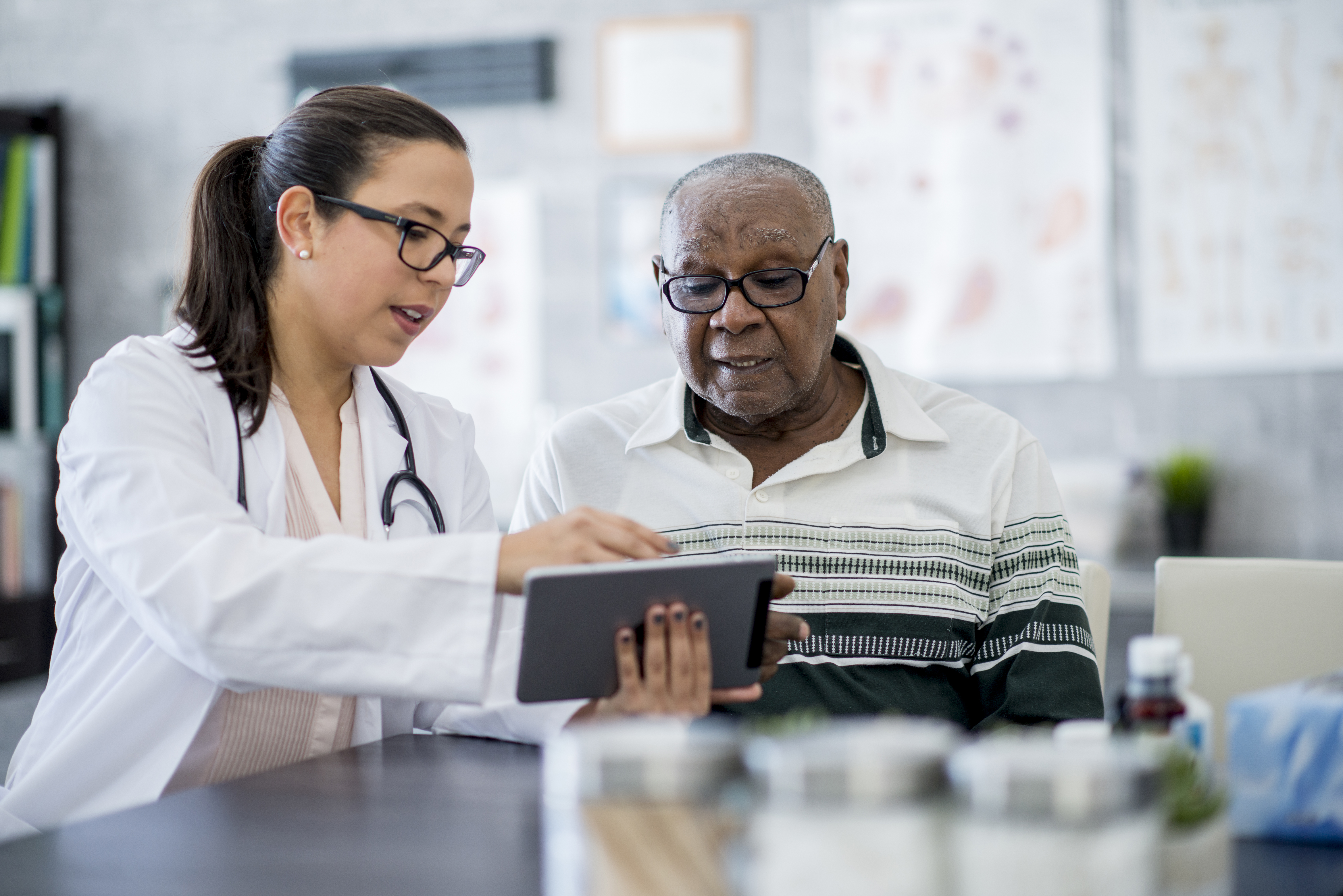Effective solutions to address health literacy cannot be designed without a comprehensive understanding of the barriers patients face when accessing, understanding, or using their health information. Existing resources speak to many domains and areas of health literacy, but an effective, current, validated assessment that specifically addresses digital readiness does not exist.
| AHIMA Foundation, in collaboration with Thomas Jefferson University and their affiliated health system Jefferson Health (TJU), are developing and implementing a digital readiness screener to identify and address a patient’s health literacy needs ─ unlocking the potential of health information for a more equitable healthcare ecosystem. |
|
By identifying the root causes of low health literacy among their patient population, Jefferson can target funding and design program interventions that support the needs of those they serve ─ specifically the underserved and underrepresented populations in the city of Philadelphia and surrounding communities.
What is Digital Readiness?
An operational definition of digital readiness includes several things such as:
- Digital skills: The skills necessary to initiate an online session, surf the internet and share content online.
- Trust: People’s beliefs about their capacity to determine the trustworthiness of information online and safeguard personal information.
- Use: The degree to which people use digital tools in the course of carrying out online tasks.
Community-Based User-Centered Design of a Digital Readiness Screener
Through interviews with a representative and demographically diverse patient sample from Jefferson, this project explores various patient-centered domains of digital health readiness, such as:
- the ability to locate credible health information online
- find and download a health app
- log into a patient portal
- use telehealth for a clinical visit
- trust of digital health information
Questions on the screener will therefore be developed and tested using the aforementioned concepts identified during patient interviews.
Implementing a Digital Readiness Screener into the Electronic Medical Record
The American Health Information Management Association (AHIMA)’s policy statement on the social determinants of health (SDoH) advocates for the collection, access, sharing, and use of SDoH data to enrich clinical decision-making, improve health outcomes, public health, and health inequities in ways that are culturally respectful.
Through this project, screening data will be used to connect individual patients with digital health literacy resources and through these efforts demonstrate improved health outcomes. Examples of metrics tracked include:
- an increase in digital literacy and digital readiness (pre-and post-survey – re-screening using the developed screener)
- increases in treatment adherence (EMR/chart review)
Scaling a Digital Readiness Screener into Other Health Systems
Implementing this digital readiness screener in other health systems presents the promise of data at a local level identifying key barriers and opportunities to addressing the digital health literacy needs of patients. This data can also inform the AHIMA Foundation's efforts to co-create impactful health literacy interventions with community-based organizations and providers.
To learn more about this project, email info@ahimafoundation.org.
52% of Americans are hesitant to embrace new technology, according to PEW research on the digital readiness gap.

